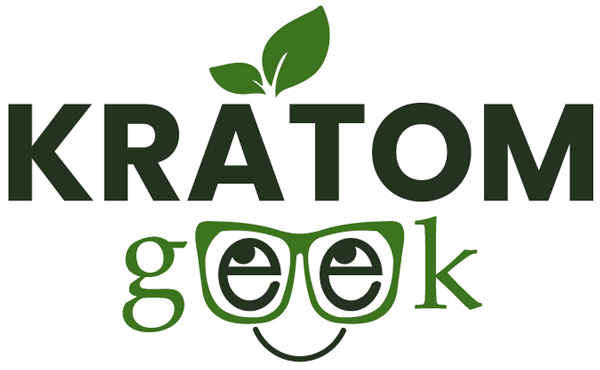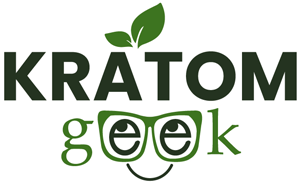As dogs age, they may begin to develop health ailments that can make everyday life difficult for them. Pain and mobility issues may arise, as well as stress, anxiety, and confusion. Our furry friends might not understand what’s happening to their bodies, so they will rely upon their owners to take an active role in maintaining their wellbeing. Outside of prescription medication (or in addition to it), alternative medicine may provide some relief for your pet. Read through the various alternative medicines, and their uses, listed below to find a remedy that works for your aging dog.
What Is Alternative Medicine?
Alternative medicine can encompass a range of therapies, from acupuncture and massage therapy to homeopathy and supplement use. These therapies are referred to as “alternative” because they are considered medically unorthodox and/or they don’t follow traditional medicinal practices, though they may be advised to be used in tandem with more traditional modes of care.
Some forms of alternative therapies, however, are becoming more mainstream and increasingly used in conventional medicine.
Types of Alternative Medicine
There are many types of complementary and alternative medicines that can be beneficial to your senior dog. These medicines are often used in conjunction with conventional medicines and treatments. Alternative medicines range from physical forms of therapy, such as acupuncture, to supplements such as CBD oil or kratom.
Below are different types of alternative medicine to consider for your dog:
Acupressure/Acupuncture
Acupressure, or acupuncture, may be used on dogs with arthritis, joint inflammation, or mobility issues. During each session, thin needles are inserted into specific points on a dog’s body, called acupuncture points. These points are places where nerves, muscles, and connective tissue can be stimulated.
Conditions in dogs that may be helped by acupressure or acupuncture could include:
- Hip dysplasia;
- Degenerative joint disease;
- Chronic back pain;
- Spinal cord injuries;
- Lick granulomas;
- Some issues associated with cancer;
- Side effects of cancer treatment such as tissue inflammation or nausea;
- Metabolic diseases.
Massage Therapy
Massage therapy involves the manipulation of the body’s soft tissue through specific hand or arm movements. Massage therapy can often be incorporated into your dog’s existing treatment plan. This type of therapy works as both a way to reduce the risk of injuries or as a form of rehabilitation post-injury. There are many potential benefits to massage therapy, such as improved muscle and joint function and enhanced circulation, as well as basic stress and pain relief.
Conditions in dogs that may be relieved by massage therapy could include:
- Chronic musculoskeletal injuries;
- Separation anxiety or trauma-related anxiety;
- Post-surgical recovery.
Massaging is also a great way to detect possible injuries, find lumps, bumps, or ticks, and spot any other abnormalities on your pet.
Chiropractic Therapy
Chiropractic therapy involves hands-on spinal manipulation. The basic theory behind chiropractic care is that the proper alignment of the spine results in better overall health. Chiropractic therapy can focus on injuries, work to restore mobility, and work to relieve pain in dogs, just as it works to do in humans.
Conditions in dogs that may be supported by chiropractic therapy include:
- Chronic musculoskeletal disorders;
- Acute tension or stiffness;
- Separation anxiety;
- Incontinence;
- Muscle spasms and nerve problems;
- Hip dysplasia;
- Lick granulomas.
Aromatherapy
Aromatherapy involves the sense of smell. The therapy itself uses essential oils as the medium to improve health and wellbeing. Essentials oils are concentrated plant matter, incorporating any part of the plant such as seeds, flowers, fruit, leaves, stems, and roots. Their use dates back to the ancient Egyptians.
This form of therapy is particularly relevant, given that a dog’s sense of smell is impeccable; their noses have up to 300 million olfactory receptors, and their ability to detect scents is 40 times greater than humans.
Conditions in dogs that may be benefited by aromatherapy include:
- Anxiety and stress;
- Skin conditions.
It is important to remember that some essential oils are poisonous to dogs, and others may cause skin irritations. Despite being nature-based, essential oils are potent and can cause serious harm if used improperly. Remember to always keep essential oil bottles, candles, and diffusers out of your dog’s reach.
Hydrotherapy
Hydrotherapy (or water therapy) is yet another excellent choice for senior dogs. Being in the water can be both a recreational and therapeutic experience for dogs. Hydrotherapy can be done in lakes and ponds, as well as in pools or on underwater treadmills. The potential benefits of hydrotherapy include both physical and emotional ones. For aging dogs especially, the ability to swim in water may bring about a renewed sense of mobility.
Conditions in dogs that may be supported by hydrotherapy include:
- Neurological problems;
- ACL injuries;
- Other orthopedic injuries or conditions;
- Post-surgical healing and recovery;
- Weight loss;
- Metabolic conditions.
Nutritional Therapy/Nutraceuticals
Nutritional therapy focuses on the role that food plays in health and wellbeing. Nutraceuticals is a broad term used to describe products used for nutrition, as well as for medicine.
Eating a healthy and balanced diet is as important for dogs as it is for humans. What’s more, eating a holistic and individualized diet are key elements of nutritional therapy. Nutraceuticals are essentially a supplement that can be included in a dog’s individualized diet.
Studies show that nutritional therapy has been beneficial in dogs with heart disease: “Appropriate levels of certain dietary nutrients have been shown to increase life span, improve life quality, reduce symptoms and physical evidence of disease, and decrease mortality rates in these animals.”
Conditions in dogs that may be supported by nutritional therapy or nutraceuticals include:
- Heart disease;
- Allergies;
- Kidney disease;
- Orthopedic conditions;
- Skin and coat health;
- Gastrointestinal issues;
- Weight loss.
Homeopathy/Herbal/Botanical Medicine
Homeopathy uses tiny, diluted amounts of natural substances (such as herbs and botanicals) to support health conditions. This practice is based on the belief that the body can heal itself. Homeopathic medicine often takes a holistic approach, as it considers the patient as a whole, rather than focusing on any specific condition or ailment.
Conditions in dogs that may be supported by homeopathy, herbal, or botanical medicine include:
- Upset stomach;
- Skin conditions;
- Joint or muscle problems;
- Wound healing.
You may also wish to use homeopathic medicines to induce vomiting in dogs (with hydrogen peroxide) who have swallowed something they shouldn’t have, as well as to stop bleeding (with baking soda) when you clip their nails too close to the skin.
Homeopathic medicines should always be taken under a veterinarian’s guidance.
Other Supplements
Supplements are medicines that contain dietary ingredients. Examples could include:
- Fish oil, which helps support heart health, can reduce itchy or flaking skin, and can help relieve joint pain.
- CBD oil is a product derived from cannabis. There is anecdotal evidence that CBD oil can help dogs’ pain and control seizures.
- Different types of kratom may provide different therapeutic benefits to dogs. Like any supplement, you should speak with a veterinarian, as well as perform your own research on its effects.
Conditions in dogs that may be supported by supplements include:
- Heart conditions;
- Skin conditions;
- Joint pain;
- Stress and anxiety.
Remember to always consult with a veterinarian before putting your dog on any supplement.
Benefits of Alternative Medicine for Aging Dogs
Each type of alternative medicine comes with a plethora of potential benefits for aging dogs. Below is an idea of the general, probable impacts of alternative medicine as a whole.
- Usually non-invasive: Unlike surgery, a potentially traumatic and highly clinical form of care, alternative medicine is largely non-invasive. As dogs age, surgical procedures can place more and more stress on their bodies. Non-invasive care options are critical to helping to alleviate their pain without overdoing it.
- Minimal side effects: Prescription medication for senior dogs may have various side effects. Many forms of alternative medicine, on the other hand, have few potential negative side effects. Acupuncture, for instance, has minimal side effects in dogs; a sore or stiff feeling are about the only adverse effects, and these tend to go away quickly.
- Lessen the need for excessive/frequent office visits: Many of these alternative therapies can be applied at home, reducing your number of visits to the vet. Supplements, for instance, can be bought without a prescription at a local pet store or online. You can then administer the supplements to your dog. Before starting your dog on a supplement, however, it is important that you speak to your vet.
- Improved mobility: The main goal behind many of these therapies is for dogs to have improved mobility. For senior dogs especially, these techniques could help ease pain and soothe the joints.
- Decreased stress: Practically any health conditions may bring about stress in your pet. Alternative medicines may help alleviate that stress.
- Improved appetite: In conjunction with decreasing stress in your dog, these alternative therapies may also help improve their appetite. Pain could be one of the reasons why your pet may not be eating. Addressing that pain could help them return to regular eating habits.
Conditions Natural/Alternative Medicine Can Help With
Natural and alternative medicine can help with a variety of conditions in aging dogs. Some of these practices help with physical pain, while others may help with emotional pain.
Below are a few age-related health conditions in dogs to be aware of:
- Osteoarthritis and joint issues: Osteoarthritis and joint issues are common among aging dogs. Osteoarthritis, also referred to as degenerative joint disease (DJD), occurs when the tissue at the end of bones wears down. This gradual wearing causes pain and may limit mobility.
- Epilepsy and seizures: Epilepsy or seizures are other conditions that may arise in older dogs. These issues are usually the result of a different underlying condition, such as a brain tumor, kidney disease, or an insulin overdose in dogs with diabetes.
- Cognitive dysfunction syndrome: As dogs age, they may experience cognitive dysfunction syndrome (CDS), among other behavioral-related changes. Much like humans, dogs’ minds may begin to deteriorate, negatively impacting their memory, awareness, and sense of sound and sight.
- Anxiety and stress: Anxiety is sometimes an age-related problem in dogs with CDS. The symptoms of CDS may be distressing to dogs, bringing about feelings of anxiety and stress.
Holistic Dog Care Resources
Below are resources on holistic care for your senior dog:
- Academy of Veterinary Homeopathy: The Academy of Veterinary Homeopathy is composed of a group of veterinarians dedicated to treating animals with homeopathic medicine. These veterinarians uphold the principles associated with classical homeopathy. They offer a number of resources surrounding this form of alternative medicine.
- American Academy of Veterinary Acupuncture: The American Academy of Veterinary Acupuncture is a nonprofit organization that offers several resources on acupuncture for dogs.
- American Veterinary Chiropractic Association: The American Veterinary Chiropractic Association consists of a group of dedicated professionals promoting chiropractic medicine for animals.
- American Holistic Veterinary Medical Association (AHVMA): The American Holistic Veterinary Medical Association is a group of veterinarians and allies committed to expanding the reach of holistic, integrative medicine. They provide an array of resources on their site for pet owners.
- American Holistic Veterinary Medical Foundation: The American Holistic Veterinary Medical Foundation is a nonprofit organization that seeks to promote holistic veterinary medicine.
- American Kennel Club – CBD Oil For Dogs: The American Kennel Club offers a thorough resource on providing CBD oil to dogs.
- Speciosa.org: Speciosa.org has a resource regarding the use of kratom by pets. The resource also features testimonies from pet owners regarding the plant’s efficacy.
- Emotional Pet Support: Emotional Pet Support also offers a guide on giving kratom to pets. The resource discusses benefits and maintaining the right dosages.
- Trupanion: Trupanion provides a guide to homeopathic medicine for cats and dogs. The resource features a definition of homeopathy, benefits, types of treatment, and precautions.
Veterinary Botanical Medicine Association: The Veterinary Botanical Medicine Association consists of a group of veterinarians and herbalists seeking to promote the use of herbal medicine in pets.






